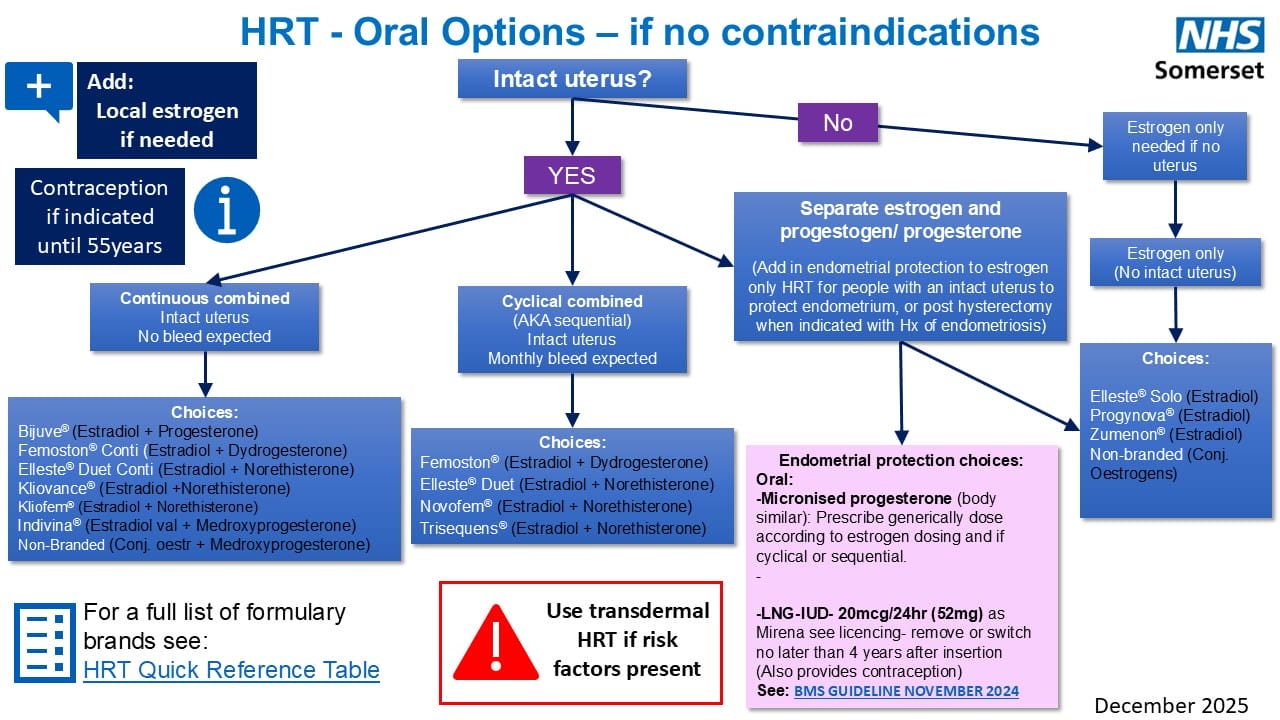Oral Hormone Replacement Therapy
In this section
An individualised approach should be taken with each person needing support with the menopause, refer to Menopause and Hormone Replacement Therapy page for diagnosis and management of people with symptoms of menopause.
Oral HRT is more cost effective but treatment options need to be individualised based on patient risk factors and preference. Transdermal route may be more appropriate for patients with risk factors as detailed in NICE.
HRT:
-does not increase cardiovascular disease risk when started in women aged under 60 years
-does not affect the risk of dying from cardiovascular disease
-HRT with oestrogen alone is associated with no, or reduced, risk of coronary heart disease
-HRT with oestrogen and progestogen is associated with little or no increase in the risk of coronary heart disease
-explain that taking oral (but not transdermal) oestrogen is associated with a small increase in the risk of stroke. Also explain that the baseline population risk of stroke in women aged under 60 years is very low
-the risk of venous thromboembolism (VTE) is increased by oral HRT compared with baseline population risk
-the risk of VTE associated with HRT is greater for oral than transdermal preparations
See [NG23] Menopause: diagnosis and management recommendation 1.5 for more information on long term benefits and risks of hormone replacement therapy.



